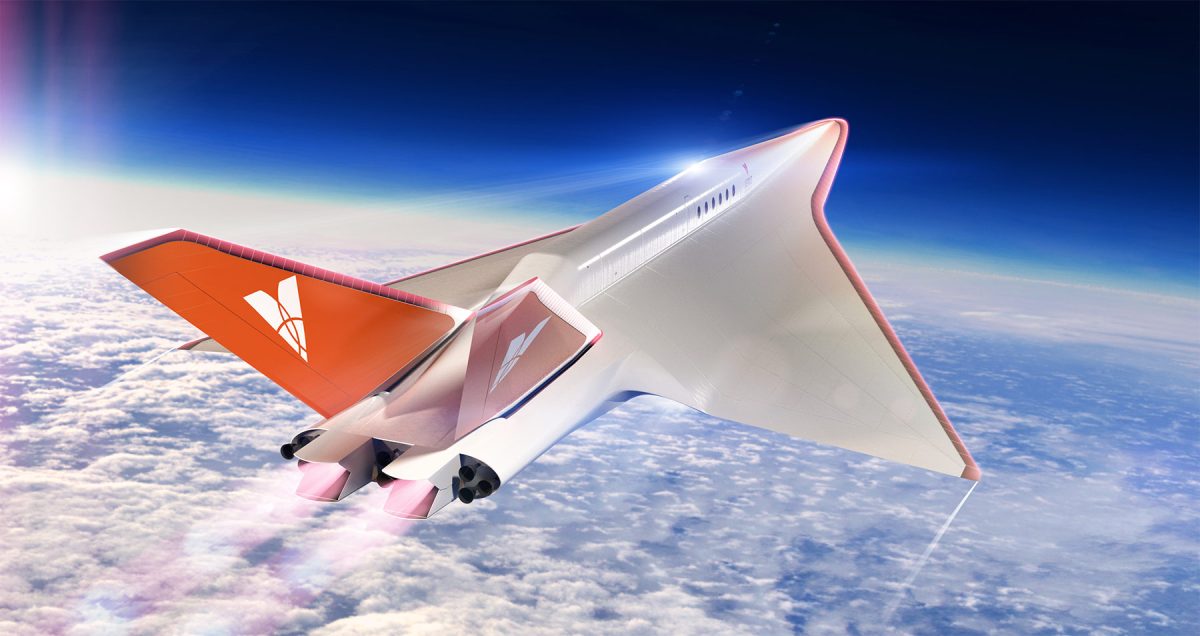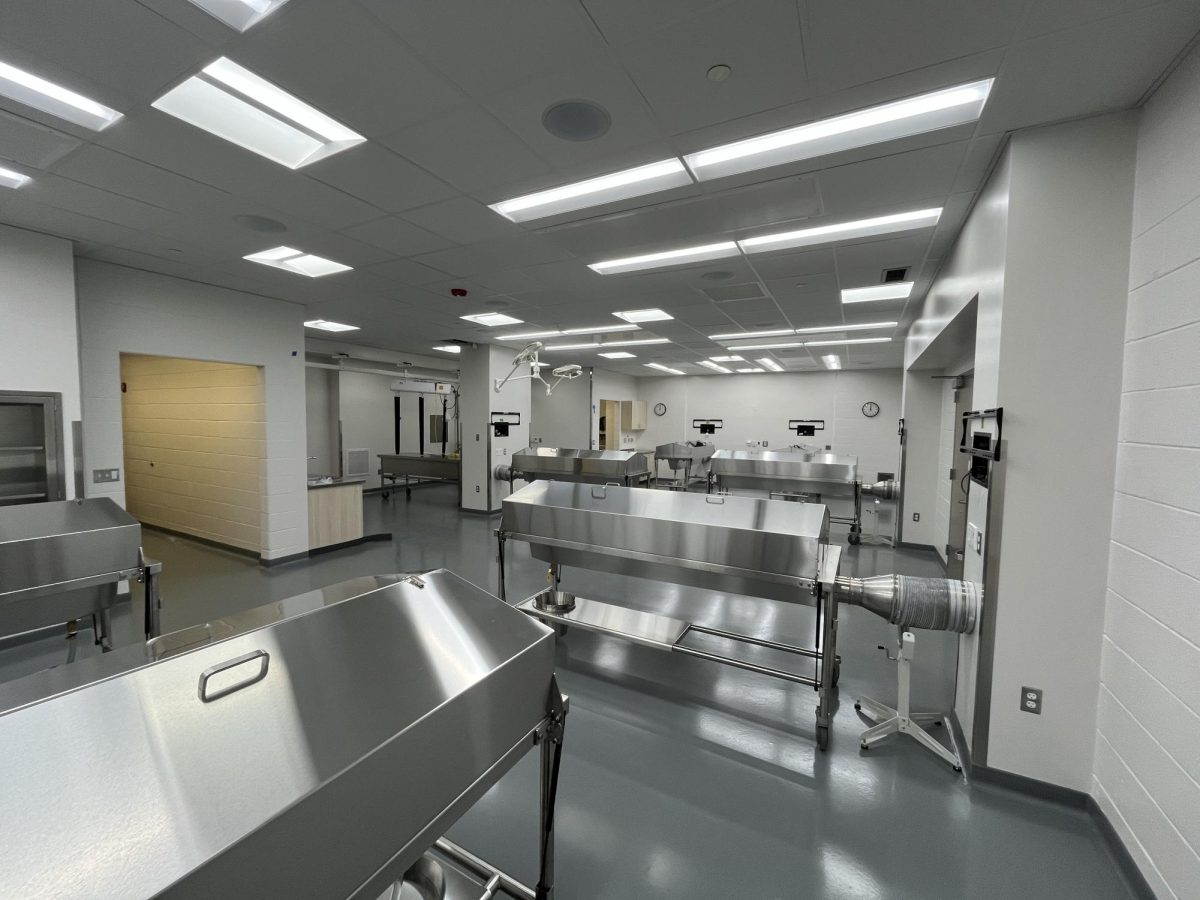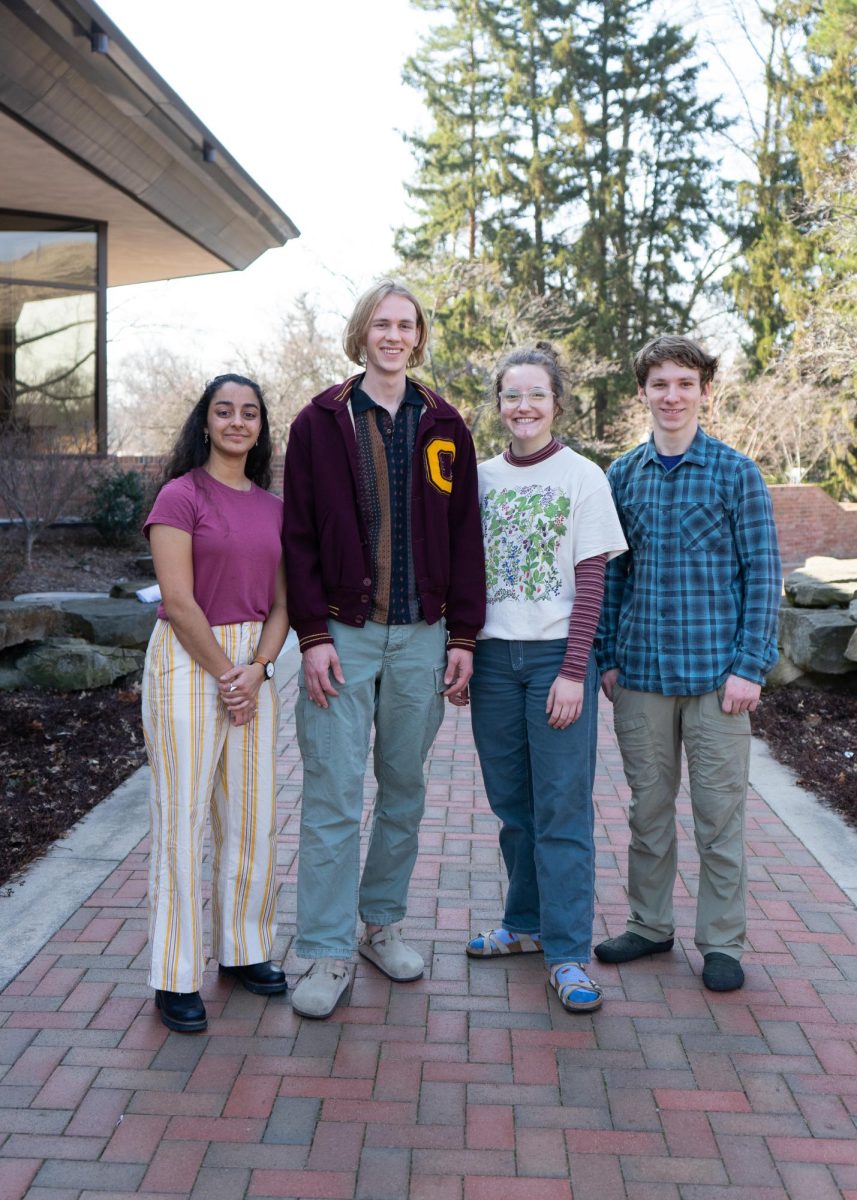Imagine being able to take a plane across the Pacific Ocean –– from San Francisco (SFO) to Tokyo (HND) –– and arriving in an hour flat. That very same day, you could get back on that plane, fly back across the Pacific and get home in time for dinner.
This is the dream of Venus Aerospace –– a Texas-based startup whose current ambition is to build a hypersonic, upper-atmospheric passenger jet named Stargazer –– capable of traveling at speeds reaching Mach 9, which is roughly the equivalent of 6,850 mph.
The team is headed by CEO Sarah “Sassie” Duggleby. Chris Palmer, who graduated from Calvin in 2006 with a Bachelor of Arts in Business Administration and Spanish, is the company’s director of corporate strategy.
Recently, both were on campus to give a talk at an executive breakfast about their experience at Venus Aerospace.
Duggleby had worked as an engineer at Virgin Orbit prior to starting Venus with her husband, Andrew, in 2020.
The name of her company has little to do with the planet Venus. Rather, the name was chosen because Venus — the Roman goddess of love — is the only female Roman goddess after which a planet is named, according to Duggleby. Duggleby spoke about the current workspaces for female engineers, especially in the aerospace industry.
“There’s a lot of 25-year-old female engineers [in the aerospace industry], and by the time they get to their 30s, there’s a few. And by the time they’re 40, there are literally none,” Duggleby said. “We had the idea of ‘could we create a more family-friendly, female-friendly aerospace environment that looks different?’”
“And so we’re truly trying to build a company where we put our employees first,” said Duggleby. “We love them well. What would it look like if you actually loved your employees? And I don’t want to say we’re the ‘anti-SpaceX’, but if you’ve ever heard stories about Elon Musk and how he treats people, he really treats people like a commodity.”
Since its founding, the company has expanded rapidly — thanks, in part, to the amount of human talent the company has collected in the years since, according to Duggleby. In the past three years, Duggleby said the company has expanded from three people to 70 full-time employees and has raised almost $60 million in venture capital. “It’s been the absolute adventure of a lifetime,” she said.
One of those talented humans was Chris Palmer, who took on the role of Venus’s director of corporate strategy in 2022. During the talk, Palmer delved into the importance of aligning corporate strategy with a clear and noble vision. Palmer drew parallels between corporate strategy and ship navigation, emphasizing the need for a “North Star” that guides the company through the ups and downs of being a startup.
“You have to make sure that your North Star is truly something that you want to form yourself into. Because you’re gonna spend a lot of time with these people, and you’re gonna spend a lot of time and effort and hours going towards something. So it needs to be bigger than just simply money or a number goal,” Palmer said.
To Palmer, the metaphorical use of “navigation” as a way to describe finding guidance in the startup world hits close to home. Palmer described how, in World War II, his grandfather was a navigator. “I have his compass too. I usually carry his World War II compass in my backpack with me,” said Palmer.
With navigation, there come obstacles. Air travel –– especially what Venus is proposing –– caters mainly to the middle and upper classes. An audience member at the talk asked which people would truly benefit from the technology being developed at Venus. Palmer said that the initial product is “geared toward the high-net-worth individual” but that the “long tail of innovation will eventually unlock this for the masses.”
Beyond the economics of Venus’s plan, the audience member also asked about the impact that Stargazer would have on the environment. According to Palmer, the amount of jet fuel the plane would use is “about 50% less than what a similar size plane would use. And that’s just due to the efficiency of the rocket engine. So 50% less emissions.”
That’s not the only reason. According to Palmer and Duggleby, because the plane is flying in nearspace, there is almost no air to generate friction. Without friction, the plane can effectively glide for most of the distance. Most of the fuel is spent on ascent and descent.
“The technology is crazy,” Palmer said. “But also, I would say that the coolest part about being able to share the story, and for Sassy to show a little more of the vision of this company, is that there really is a redemptive lens to it. That’s really big.”








